Myth #30: The use of medical marijuana will be allowed in the workplace.
There is considerable misinformation in the community since the House of Assembly and Senate passed the Cannabinoid Pharmaceutical Products Act 2014. Add in Premier Dunkley’s recent comment that the Act was part of a “phased approach to cannabis reform”, and it is understandable how the position in relation to the legality of cannabis might need to be clarified.
From a workplace perspective, it is prudent to note that while the drugs named in the Cannabinoid Pharmaceutical Products Act are now legally able to be prescribed, this does not mean that the drugs can be freely used in the workplace or while working. This statement will include ‘natural’ marijuana or smoking of marijuana if they are indeed to be legalised in the future. One needs only consider the use of alcohol. While the use of alcohol is legal, if it impairs an employee’s ability to do their job safely and effectively, an employer may have proper grounds to dismiss that employee. The position will be no different for any prescription drugs.
What is made legal under the Cannabinoid Pharmaceutical Products Act 2014 (the “Act”)?
Let’s be clear; the Act does not make marijuana legal. It introduces three cannabinoids (medical drugs based on cannabis) called Marinol, Cesamet and Sativex and includes them in the drugs permitted for prescription purposes. The marijuana plant, and even oils derived from it, is currently still illegal, although there is an indication that this may change in the future.
However, just having a prescription for a drug, whether it be Marinol, Cesamet and Sativex or a painkiller such as Codeine, does not mean that an employee can use that drug in their workplace or while working without restriction. As a starting point, all employers are concerned with their employees showing up for work in a condition appropriate to perform their duties in a safe and effective manner. While specific cases will depend on the relevant employment agreement and the employer’s drug policy, the Bermuda Courts are likely to find that if a substance (whether it be an illegal substance or not) is capable of causing impairment of judgment, then nothing further is required to be shown other than that the substance was prohibited by an agreed to drug policy and the employee tested positive for the substance. This is especially important when the job involves public safety such as a bus driver, ferry operator or operator of heavy machinery.
What next steps should an employer consider?
In light of the Act and the impending further reforms, employers should take the time to review their current employment agreements, workplace drug policies and seek legal advice on updating and amending the agreements and policies. Employers should consider the viability and effectiveness of random drug testing. Employers should think about their position in relation to the provision of counselling or treatment for employees with substance abuse problems. This analysis should now include a consideration of any general prescription drug impairment rules that might be in place. While there is no law, including the new Act, which requires employees to disclose to their employers that they have a drug prescription, an employer must consider whether such disclosure should be necessary for jobs involving a public safety aspect. Employees must also be educated about their rights and obligations.
If employers do not have a detailed policy or policies setting out the rights of the employer and employee in relation to drugs, a good employment lawyer will be able to assist in developing and implementing an appropriate policy.
There is a fine line to be drawn between zero tolerance for illegal drugs and accommodating legitimate illnesses that require prescription drugs, while considering the privacy of employees. The line has become even thinner with the new Act and drawing this line requires careful thought and consideration and may necessitate some legal advice.
This article has been written by:
John Hindess is an Associate in the Litigation and Advice Team at Marshall Diel & Myers Limited. He also sits on the board of the Employee Assistance Program. This column is for general guidance only and does not constitute legal advice.




